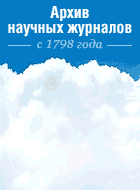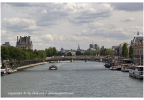Другие журналы
scientific edition of Bauman MSTU
SCIENCE & EDUCATION
Bauman Moscow State Technical University. El № FS 77 - 48211. ISSN 1994-0408
Exposing a Corporate Trend in Higher Education in Germany
17.02.2014
Christian Humborg wants German universities and corporations to know: They’re being watched.
As managing director of Transparency International Germany, a nongovernmental organization that fights corruption, Mr. Humborg sees a troubling trend in German higher education, as more top-name universities embrace “strategic partnerships” with business and seek to commercialize their research.
Such collaborations are not entirely new to Germany — and are certainly common in the United States. Still, as the education budgets of Germany’s 16 federal states, which are largely responsible for funding universities, have stagnated, more institutions have sought alliances with corporations.
Mr. Humborg’s group is working with the Free Association of Student Bodies, a student-union group, and Die Tageszeitung, a left-leaning newspaper, to expose what they see as a creeping corporate influence on public higher education.
Last year they started Hochschulwatch, or University Watch, a crowdsourced website that tracks university-business partnerships.
In the past, German companies augmented their own research and development funding by contracting with university institutes to conduct individual research projects. But today’s long-term partnerships are different. Companies outsource parts — or even all — of their research and development programs to public universities by financing whole departments or institutes.
University Watch has collected information on nearly 400 universities and colleges; students, faculty members, and administrators are encouraged to contribute information about the nature of corporate sponsorships at their institutions. Die Tageszeitung evaluates the source and the information and sometimes follows up with reporting.
Recently, every sponsored professorship in the country was added to the website, along with the name of the sponsor.
The project came to life after disclosures that two top universities in Berlin, Humboldt University and the Technical University of Berlin, had secretly allowed Deutsche Bank, one of Europe’s largest banks, wide-ranging discretion in the operations of a joint institute for applied mathematics and finance.
At a total cost of $16 million over four years, the bank also directly sponsored two of the institute’s full professors.
In return, Deutsche Bank stipulated that it would participate in selecting faculty; that bank staff would teach seminars at the institute; that it would have the final say on research strategy and salaries; and that publication of sponsored research would be “in the interest of the Deutsche Bank.”
Full text of the article: The New York Times site
| Authors |
| Press-releases |
| Library |
| Conferences |
| About Project |
| Phone: +7 (915) 336-07-65 (строго: среда; пятница c 11-00 до 17-00) |
|
||||
| © 2003-2024 «Наука и образование» Перепечатка материалов журнала без согласования с редакцией запрещена Phone: +7 (915) 336-07-65 (строго: среда; пятница c 11-00 до 17-00) | |||||



